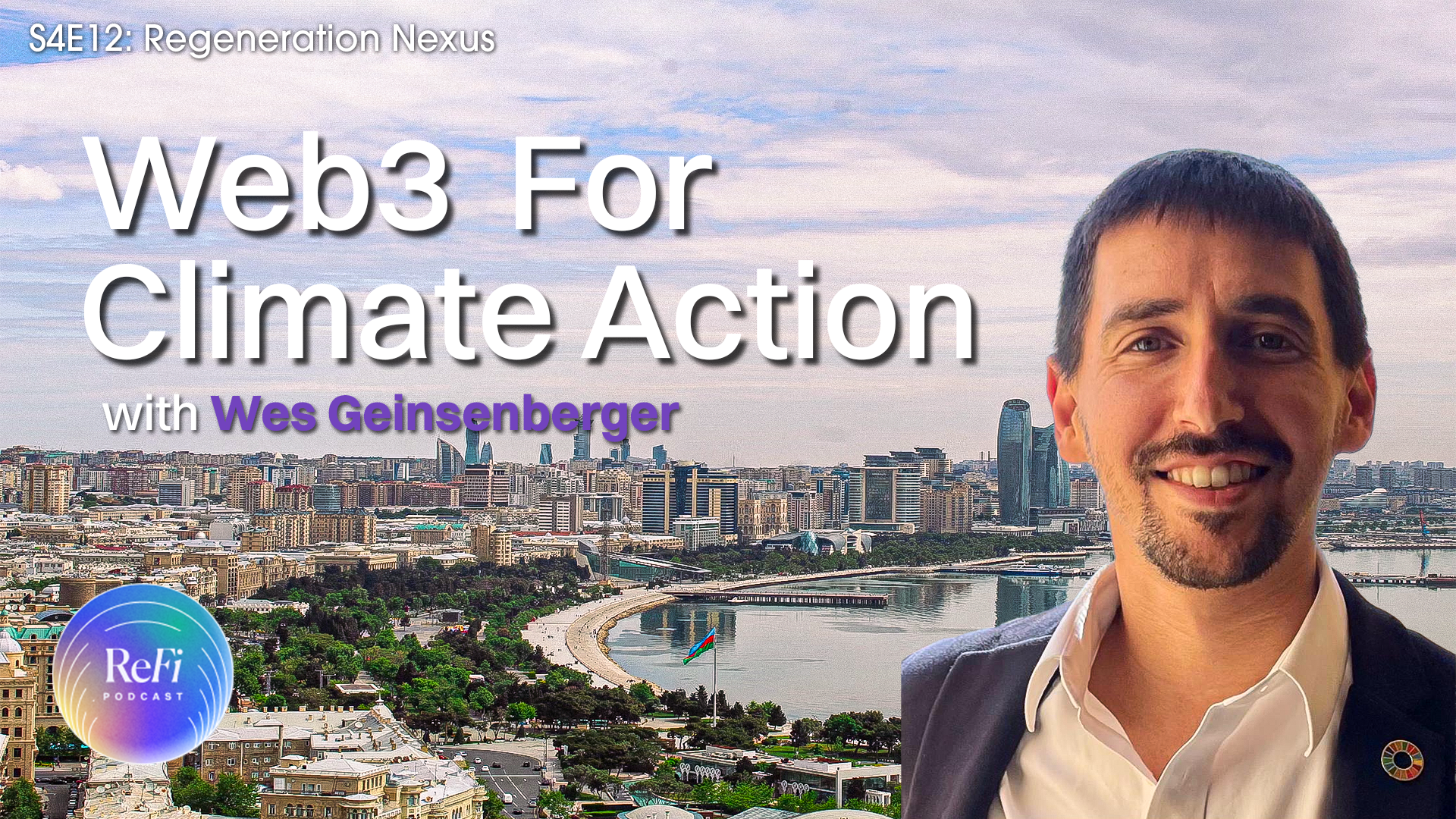Web3 for Climate Action With Wes Geisenberger | S4E12 🌐🎧

What is the state of blockchain adoption in climate action?
In Episode 12, the final episode of Season 4, The Regeneration Nexus, of the ReFi Podcast, hosts Maya Dentzel and Tereza Bízková welcome Wes Geisenberger, Vice President of Sustainability & ESG at the HBAR Foundation. As part of the Hedera ecosystem, the HBAR Foundation supports innovations that aim to solve systemic challenges in sustainability and climate finance, from emissions tracking to biodiversity conservation.
Drawing on his experience at COP29, Wes highlights the growing recognition of blockchain’s potential in climate efforts—specifically in creating transparent carbon markets and ensuring accountability across stakeholders. But he’s clear that the real challenge isn’t just about building better tools; it’s about addressing issues like governance, capacity building, and accessibility to make these tools effective for everyone, from large institutions to local communities.
Wes also offers a reality check for the ReFi space. While blockchain has often been associated with tokenization and financialization, he argues that the focus is shifting to the data and systems behind these assets. For Wes, it’s not just about making financial tools easier to use but about creating frameworks that allow meaningful collaboration—whether it’s between governments under Article 6 of the Paris Agreement or corporations tracking their emissions in supply chains.
This episode is a call to rethink how we approach climate finance: not by chasing quick wins, but by building tools and frameworks that foster long-term impact and inclusion.
Key insights from Episode 12 include... 💡
- Reframing accountability in global climate finance: Traditional climate frameworks often lack mechanisms to enforce integrity. Wes explains how blockchain can go beyond tracking pledges to digitizing methodologies, automating validation, and enabling real-time transparency. The Hedera Guardian shows how these systems can help close gaps in trust.
- The missing piece in carbon markets: scalable methodologies: Carbon markets rely on solving issues like validation bottlenecks and inconsistent standards to scale effectively. Wes highlights how digitized, open-source methodologies can drive faster adoption, better standardization, and improved traceability, making carbon credits more practical and reliable.
- Shifting ReFi’s focus to systems, not assets: ReFi’s early focus on tokenization has limited its ability to scale. Wes calls for a move toward systemic innovation, where blockchain strengthens the infrastructure and data systems needed for meaningful collaboration across governments, corporations, and communities.
- Interoperability isn’t just technical—it’s systemic: Wes emphasizes that interoperability must address governance and methodology alignment. Tools like the Hedera Guardian can support cross-border collaboration by linking Article 6 compliance with voluntary carbon markets, enabling systems where data flows smoothly while addressing both global and local needs.
🎧 Tune in to Episode 12
Thank you to everyone who has joined this journey. Please share your thoughts and feedback, and if you've found value in our efforts, consider supporting us with a five-star review on your favorite podcast platform.
Every bit of encouragement helps us expand our reach and deepen the impact of ReFi Podcast. You can also buy us a coffee or support our work directly on Giveth.
We are honored to be on this journey alongside you. 💜

